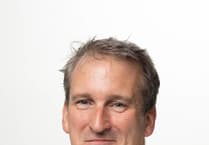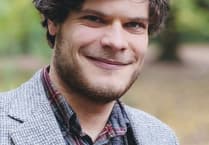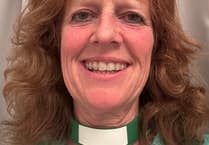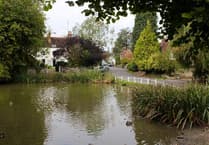“Habemus papam!” – it is the phrase exclaimed as white smoke is seen above the Sistine Chapel: “we have a new pope!”.
The 267th pontiff is the latest in a line that stretches back to St Peter. Pope Leo XIV will be both a spiritual leader and a head of state. He is the first baby-boom generation pope, the first US pope and simultaneously the first Peruvian pope (he holds both nationalities).
A new papacy is a significant moment for the world’s 1.4 billion Catholics, including the thousands here in East Hampshire – but there is also some significance beyond.
True, religious observance in many places has been in long-term decline. In the 2021 Census, about two-fifths of East Hampshire residents reported having "No religion", up from a quarter in the previous census a decade prior – a little greater a rise than for England as a whole.
But maybe the tide is starting to turn. Last week’s Economist reported on a survey of adults that showed a large rise since 2018 in the proportion saying they attend church at least once a month – led by young adults, especially young men.
There were also plenty of people who are not Christian, let alone Catholic – indeed quite a few atheists and agnostics – who still paid close attention to the selection of the new pope. The world’s media certainly did.
The Catholic church does have an extraordinary global reach – from the developing world to the richest nations. And it is unusual in combining this huge scale and scope, with a single global head – hence the focus on the papal office and its holder.
More broadly, even in an ever more secular society, religion and religious traditions still play a role in our national life.
Many trusted and well-known organisations have their roots in faith. “Saint” is the most common word in the names of schools. There are development agencies like Christian Aid, World Vision and CaFOD, the Children’s Society and Action for Children, the Salvation Army, hospices and care homes, and countless local charities.
There is still a link between Church and State but it is one which need not conflict with a diverse society where very many are not religious at all.
Every parliamentary day starts with prayers, with these lines:
“Lord … grant to our King and his government, to Members of Parliament and all in positions of responsibility, the guidance of your Spirit. May they never lead the nation wrongly through love of power, desire to please, or unworthy ideals; but laying aside all private interests and prejudices, keep in mind their responsibility to seek to improve the condition of all mankind.”
With or without a religious faith, it seems sound guidance.




Comments
This article has no comments yet. Be the first to leave a comment.